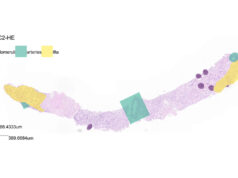 AlloVir has announced preliminary, blinded data from an ongoing Phase 2 study of posoleucel—an investigational, allogeneic, off-the-shelf, multi-virus-specific T cell (VST) therapy for the treatment of BK viraemia in adult kidney transplant recipients. These data from the largest study of T cell therapy in solid organ transplant patients presented to date—as per an AlloVir press release—were recently shared at the 2022 American Transplant Congress (ATC; 4–8 June, Boston, USA) and provide an early indication of the safety and tolerability profile of posoleucel in kidney transplant recipients with BK viraemia, which is associated with reduced graft survival and has no approved treatment.
AlloVir has announced preliminary, blinded data from an ongoing Phase 2 study of posoleucel—an investigational, allogeneic, off-the-shelf, multi-virus-specific T cell (VST) therapy for the treatment of BK viraemia in adult kidney transplant recipients. These data from the largest study of T cell therapy in solid organ transplant patients presented to date—as per an AlloVir press release—were recently shared at the 2022 American Transplant Congress (ATC; 4–8 June, Boston, USA) and provide an early indication of the safety and tolerability profile of posoleucel in kidney transplant recipients with BK viraemia, which is associated with reduced graft survival and has no approved treatment.
“Kidney transplant recipients are particularly challenged by BK viraemia, which puts the survival of their transplanted graft at risk,” said Anil Chandraker (Brigham and Women’s Hospital, Boston, USA). “We currently manage high-level BK viraemia by reducing immunosuppressive therapy—which can help a patient’s immune system clear the virus—but this approach raises the risk that the immune system will attack and reject the graft. The potential for posoleucel to specifically restore immunity to BK viraemia as an alternative to reducing immunosuppressive therapy would be a significant advance. The preliminary safety and tolerability data from this study are highly encouraging and support the continued evaluation of posoleucel to address this important unmet need.”
AlloVir’s ongoing, randomised, double-blind, placebo-controlled Phase 2 study is evaluating the safety and tolerability of posoleucel for the treatment of BK viraemia in 61 adult kidney transplant recipients with BK viraemia between 350–10,000,000 copies/ml. Enrolment in the study has completed. Patients were randomised 1:1:1 to receive one of two dosing regimens of posoleucel (weekly administration of posoleucel for three weeks, then every two weeks; or weekly for three weeks then once a month) or placebo over a period of 12 weeks. Following this dosing period, patients are followed up through week 24.
At the time of the data cut-off for this preliminary blinded analysis, 61 patients had received at least one dose of posoleucel or placebo at a median of 458 days post-transplant, including 28 patients who had completed dosing, four patients who discontinued dosing due to resolution of BK viraemia per protocol, and 12 patients who completed 26 weeks of the study. Of the 61 patients randomised, 56% (n=34) had a screening BK viral load under 10,000 copies/ml and 44% (n=27) had a screening BK viral load over 10,000 copies/ml.
The primary study endpoint is safety and tolerability of posoleucel versus placebo. In this preliminary blinded analysis, headache, which was reported in six patients (10%), was the only adverse event judged by investigators to be related to study drug that occurred in more than 5% of patients. No grade 3–4 adverse events, treatment-related serious adverse events, treatment discontinuations due to adverse events, or deaths, were reported.
There were no cases of graft rejection and no episodes of graft versus host disease or cytokine release syndrome. One patient developed de novo donor-specific antibodies, but these antibodies were not found to be directed against posoleucel antigens in the matching cell line. Overall kidney allograft function, as assessed by creatinine and estimated glomerular filtration rate, remained stable. Reduction in immunosuppression occurred in six patients (10%) at the discretion of study investigators who agreed to follow protocol-defined guidelines.
As per the key secondary endpoint of the study—change in BK viraemia in patients receiving posoleucel versus those receiving placebo—declines in median BK viral load were observed in this blinded dataset, irrespective of the baseline BK viral load. At baseline, 34 patients had a viral load below 10,000 copies/ml. The median viral load in these 34 patients was 2,042 copies/ml on day one. Among the 14 patients who had reached the week 12 timepoint at the time of this analysis, the median viral load had declined to 245 copies/ml. At baseline, 27 patients had a viral load above 10,000 copies/ml and the median viral load was 190,546 copies/ml at day one. Among the 14 patients who had reached the week 12 timepoint at the time of this analysis, the median viral load had declined to 27,542 copies/ml.
Exploratory study endpoints include posoleucel persistence by T cell receptor (TCR)-beta sequencing and the assessment of T cell expansion by ELISpot. Posoleucel VSTs were detected in the seven patients with available TCR sequencing data during the infusion period and for up to 12 weeks after the last infusion. Expansion of functional BK-specific VSTs were confirmed in six of these seven patients. As per an AlloVir press release, topline, unblinded study results from all 61 patients are expected to be released in the first quarter of 2023, after completion of the study at the end of this year.












